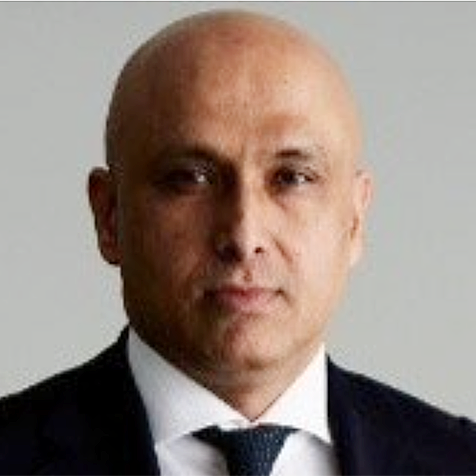BOCHK Asset Management (中銀香港資產管理 or BOCHK AM), the newly formed asset management company, might seem to have come late for a well-established bank like Bank of China (Hong Kong) (BOCHK), but its success is critical.
BOCHK is ramping up its private banking business, driven by the increasing needs of China’s rising middle class for offshore investments. BOCHK AM is going to play a strategic role in supporting the development of BOCHK’s wealth management platform by developing into the preferred product provider and strategic partner of BOCHK’s private banking operation and by becoming a trusted adviser to its clients.
In addition, BOCHK AM will serve to enhance third-party due diligence and provide support on front-line marketing and investor education.
“In terms of product division, we have helped the bank to better differentiate the mass from high net worth. For example, we launched three private funds just dedicated to the high net worth segment of the bank,” states Au King-lun (區景麟), chief executive officer of BOCHK AM.
A jump start
Having formally started operations in January 2011, the asset management company rapidly grew its assets under management (AUM) to US$6.4 billion as of the end of April 2012. After launching four fixed-income funds, including one onshore renminbi bond fund, the majority of its AUM now flows into fixed-income products.
While BOCHK used to source investment products primarily from third-party fund managers and BOCI Prudential, an asset management joint venture between BOC International and insurer Prudential, there was an urge for BOCHK to set up its own asset management arm. “In terms of third-party fund managers and distribution platform, BOCI Prudential is one of our partners. But it can’t be involved in this internal strategic development,” says Au.
Mindful of the goal of becoming a solutions provider to BOCHK’s clients, Au sets out to find the best approaches for his clients. “Where we are not experts, we can be trusted partners of clients. They can choose their own product or come through us as their gate keeper. For our private clients, I hope they will come to us for investment ideas and large institutions may use us as a consultant,” explains Au. “Therefore, it doesn’t mean we will manage all the assets. We are working with third parties on a partnership basis,” says Au. For its first renminbi bond fund, for example, BOCHK AM partnered with Aberdeen Asset Management. This will allow BOCHK AM to invest up to 40% of the fund in onshore fixed income through Aberdeen’s QFII quota.
In addition, it has been seeking partners outside Hong Kong in an effort to expand its distribution network beyond the region. In mid-June, it launched a Luxembourg-based fund in Europe with Sal. Oppenheim, a 223-year-old private bank in Germany, since 2010 owned by Deutsche Bank. Managed by BOCHK AM, SOP AnleihenChinaPlus is an Asian fixed-income fund with a China focus. Au says the company is now in talks with potential distribution partners in the Middle East and other parts of Asia. In Hong Kong, the primary distribution channel for its public funds remains BOCHK branch networks.
First real test
More groundbreaking for BOCHK AM has been the launch of BOCHK World Bank Emerging Markets Bond Fund (中銀香港-世界銀行新興市場債券基金), its first authorized fund by Hong Kong’s Securities and Futures Commission (SFC).
At least 85% of the fund’s net asset value will be invested in World Bank debt securities, denominated in the currencies of China’s trading partners in emerging markets and commodities countries. The exclusive partnership with World Bank will provide retail investors with unique opportunities to invest in these bonds, which are usually issued in a major chunk to institutional investors.
“You may have heard that on the equities side, but I would say that this is the first China-centric emerging market bond fund. We use a top-down approach to select upside and focus on countries that will benefit more from increasing imports from China,” says BOCHK AM deputy chief investment officer Ken Hu(胡嘉琳).
China’s share of imports of energy and food is still small when compared to metals and raw materials, notes Hu, but as China is getting rich, it will consume more food and energy. Those countries’ currencies that can export to China will have strong appreciation pressure. Hence, the yield itself of bonds will likely contribute less to the performance of the portfolio. The team of investment managers led by Hu will consider other factors affecting currency trends, including long-term fair value, political forces and various technical analyses.
Hu considers the Mexican peso, Russian rouble, Malaysia ringgit, Norwegian krone and New Zealand dollar as currencies with a strong upward potential, considering their growing exports to China. He is positive about currencies of Philippines, Korea and Taiwan.
Hu says he will avoid any currencies in central Europe negatively affected by the deleveraging of Western banks in the region. He is negative on India due to its weak banking sector and large current account deficit and Indonesian rupiah as the economy has been cutting interest rates too aggressive and is facing overheating problem.
Long-only
With the triple A rating of the World Bank, the fund’s credit risks are minimal. However, the performance of the fund is highly unpredictable with currency movements constituting the greatest risk. The fund will not have any hedging strategies for currency risks as it is a long-only fund.
However, a natural hedge is that the fund can invest up to 15% in US treasuries and offshore Chinese government bonds including renminbi-denominated dim sum bonds. This is a downside protection in case of a crisis time like in 2008 when all currencies apart from the US dollar went down.
Without a benchmark, the fund is less constrained. “Many emerging market bond funds are using an emerging markets benchmark, which means they confine themselves to emerging markets,” explains Hu. “For example, a lot of them have to buy into Brazil and central European countries because of the benchmark, but this does not make sense to us. We enjoy great flexibility.”
The fund has other advantages as well, such as its scarcity value, since triple A paper is less available after the US was downgraded last year.
The bonds in which the fund invests will be issued offshore, which make them less susceptible to possible changes in local regulations such as withholding tax and local custody.
The money raised from these bonds will enter the World Bank’s funding pool, which will then become loans to emerging markets through their governments or government-guaranteed projects. To exit these portfolios, the fund can either sell their bond holdings in the secondary market or sell it back to the World Bank under their buyback programme.
“We apply a hedge fund concept into managing long-only. This fund is a good reflection of our thinking,” says Au. “If we are bullish, we can have 100% emerging market or commodities countries. If we are defensive, we can invest 100% in US treasuries, dim sum bond or Hong Kong dollar bond. We can go very defensive or aggressive, depending on our view.”
BOCHK AM has the mandate from the World Bank to replicate the concept of this fund in China’s domestic market but it is still seeking ways to do it in accordance with regulations.
Flexibility is the key
BOCHK AM is lagging in equity products but is gradually moving towards that goal. It is trying to embrace the same active management philosophy in some of its equity mandates.
Recently, it has started an advisory mandate with a Hong Kong charity that can potentially turn into a decent-size global-balanced fund. The tactical asset allocation is where BOCHK AM believes it adds value, with its chief investment officer Desmond Chan (陳繼元) leading the multi-asset team.
“We convince our clients of the way we want to manage their money. For example in equities, at one stage, we are allowed to have down to 50% cash. But we did not do it by making the decision on our own. We explained to them why we needed to do it this way,” says Au. “From day one, we requested flexibility. When you look at recent history, markets are volatile. If you cannot protect your downside, what you make in the upside can be easily wiped out when the market turns. It is true that a bull market is longer than a down cycle, but when the down cycle comes, it really hurts,” Au adds, noting that BOCHK AM’s investment motto is “benchmark aware but not benchmark driven”.
Leveraging the BOCHK franchise, BOCHK AM has the advantage of running like a boutique house with strong back-office support. It outsources IT, human resources, finance, legal and compliance to the bank.
“We have only 15 people and most of them work on investment-related issues,” says Au. BOCHK AM is making use of BOCHK’s economic and sector research, which are used by BOCHK’s business managers in running its loan policy and proprietary investments. As other fund houses, the team will make judgement on longer-term investment time frames after digesting information from sell-side research combined with its own research.
Currently, there are six investment professionals in the team, three on fixed income and the remainder in multi-assets. It is searching for another fixed-income fund manager to join the team.
Like many Hong Kong-based fund houses, BOCHK AM is developing into areas where it believes it is good at – the China market. As flocks of Chinese fund managers are expanding in Hong Kong, BOCHK AM will have its work cut out to differentiate itself from the rest.









